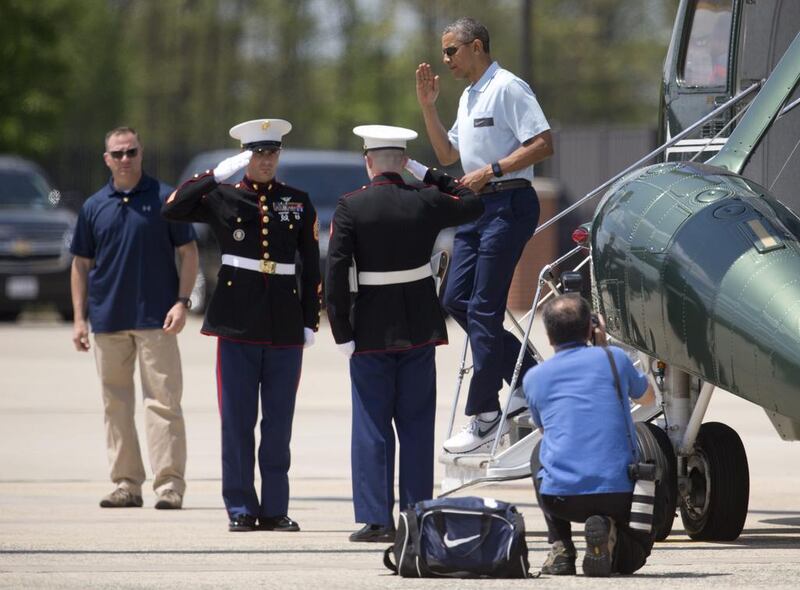When leaders of the Gulf Cooperation Council fly into Camp David tomorrow, it will be a real opportunity to explain their perspective to the US president. It will also represent a chance for Barack Obama to explain his recent Middle East policy and his plans for the US’s presence in the Gulf well past the next few years.
Mr Obama has sought to forge close relationships with the GCC, but America itself has often appeared too remote from the reality on the ground. Seen from this region, Mr Obama has often appeared more interested in the big picture – a deal on Iran’s nuclear programme, ensuring that Syria’s civil war doesn’t spill over to its neighbours – rather than in the detail of what is taking place on the ground.
But in the Middle East, the detail matters. Iran’s involvement in countries north and south of the GCC is not an overt war. But, here in Abu Dhabi and elsewhere in the region, it can certainly feel like one. The Syrian civil war, with the Assad regime backed by Iran, has destabilised the entire Levant, rendering millions homeless. Iraq’s collapse has brought ISIL to the very borders of the GCC. In Yemen, the takeover of the capital Sanaa by the Houthi rebels has destabilised one of the GCC’s most populous neighbours.
All of this will need to be conveyed to Mr Obama. America may seek a nuclear deal with Iran, but America’s traditional allies in the Gulf need to be reassured that the US will be there if – as Gulf leaders argue – the removal of sanctions merely emboldens Iran in its mischief making.
In return, Mr Obama must demonstrate that he understands the concerns and that he has a plan to deal with them. At the moment, what new framework agreement may come out of Camp David is unclear. Some, like the UAE’s ambassador to Washington, Yousef Al Otaiba, have suggested a new agreement would need to be formalised, in writing. Other GCC officials have suggested something less formal. Regardless, a new relationship is needed. The GCC countries has spent decades on the side of America. The US must demonstrate – in deeds not merely words – that it has not forgotten its traditional allies. A cosy chat around the fire in Maryland may be the best way for old friends to reconnect.





